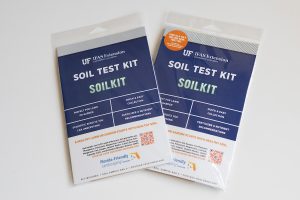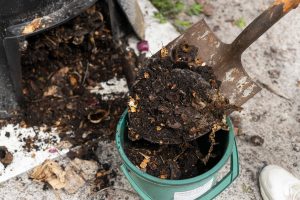What is the Relationship Between Soil and pH?
Remember those science class lessons about the pH scale? You know, the one where you learned that lemons were acidic, pure water was neutral, and baking soda was alkaline? It turns out that understanding pH is not just for the classroom; it’s also crucial for successful gardening.
Soil pH is a measure of how acidic your soil is, and it plays a significant role in the growth and survival of your plants. Just like how a balanced pH is essential for our bodies, plants also thrive when their soil pH is within the right range.
But what exactly is soil, and why does its pH matter? Soil is a complex mixture of minerals, organic matter, living organisms, water, and air. Over time, the components of soil, including additions such as fertilizers and organic matter, can influence its pH. For each unit change in the pH scale, there is a 10-fold difference in the acidity. Meaning, soil with a pH of 6.0 is ten times more acidic than soil with a pH of 7.0.
What pH Should My Soil Have?

Most vegetables prefer slightly acidic soils, with a pH range of 5.5-6.5. If your soil’s pH is too high or low, your plants won’t be able to absorb nutrients effectively, no matter how much fertilizer or water you provide.
If you suspect a pH imbalance in your soil, it’s essential to get it tested before treating it. It’s also essential to test your soil pH and nutrient content prior to fertilization. Fertilizers are necessary for proper plant growth, but their use when the plants do not need supplemental nutrients, the pH is not optimal for plant uptake, or when plants are not actively growing (think turfgrass), will result in the waste of time, money, and eventually pollution of our valuable water resources.
Our soils are porous due to them being sandy with large spaces between individual particles. They do not hold water or nutrients efficiently nor for long periods of time. This means whatever you apply to your soils (fertilizers, pesticides, irrigation) all move quickly through the soil profile, past the zone of uptake in the roots, and eventually into a water source. Fertilizer components such as nitrogen and phosphorous are extremely damaging to our water resources leading to algal blooms, fish kills, toxic red tide, etc.
UF/IFAS Extension provides Soil Testing Services that are affordable and available to the public. The results will provide valuable information about your soil’s pH, fertility levels, and nutrient content. These tests are quick and easy allowing you to fertilize more efficiently and not contribute to pollution. You can easily print a soil test form and learn how to quickly sample your soil for submission to the UF/IFAS Soils Lab or use an alternative test kit that you can pick up in any Extension Office for online payment and form submission and mail-in service.
The results will provide valuable information about your soil’s pH, fertility levels, and nutrient content as well as provide recommendations for the amount of and type of fertilizer necessary. Keep in mind that adjustment in soil pH is never permanent, so adjustments will most likely need to continue throughout future growing seasons to ensure proper plant growth and production.
Treating Acidic Soil:
So, how do you adjust soil pH if it’s too acidic, or below 7.0 on the pH scale? One method is liming, which involves adding lime to neutralize soil acidity and raise the pH. Garden lime or dolomitic lime, made from ground-up limestone or dolomite, are commonly used for this purpose. Most vegetables, fruits, and turfgrasses prefer slightly acidic soil, so it’s rare to make adjustments with lime-based fertilizers. This should only be done when recommended as a result of a soil test.
In most garden situations, soil pH is high, or alkaline (basic) and the addition of lime without pH testing and justification would cause the pH to get way too high and would likely kill your plants or at least causing low to no production in gardens and nutrient deficiencies in landscaping plants and turf.
Learn more about how to lime your vegetable garden by reading UF/IFAS Soil Preparation and Liming for Vegetable Gardens.
Remember, it’s not typically necessary to lime as the soil pH across Central Florida is typically quite high already due to the natural soil properties and naturally occurring high calcium-containing irrigation water. This varies based on specific plant needs as well.
Treating Alkaline Soil:

You have basic (same as alkaline) soil, which means the pH is above 7.0 on the pH scale. Now what? You’re not the only one, the majority of soils in Florida are alkaline with a pH above 7.0. Although it is more difficult to decrease the pH of soil, there are a few options to temporarily neutralize alkalinity of the soil.
Adding organic matter (like compost) will help acidify the soil, due to the decomposition process. Highly acidic options like peat or sphagnum peat moss are good amendments to lower soil pH. The addition of pine needles and oak leaves can also help to lower the soil pH for a brief period of time, plus it’s a great way to recycle nutrients back into the environment.
There are certain types of acidifying fertilizers that can help lower pH. Commonly used acid forming fertilizers like ammonium sulfate or other products labeled for acid reaction in the soil,
Materials like the ones listed below react with the surrounding soil and lower the pH:
- Elemental sulfur
- Aluminum sulfate
- Sulfuric acid
- Ammonium Sulfate
- Iron Sulfate
There are a few things to keep in mind when using these products. These treatments are temporary and should be used with care to avoid damage to your garden. Concentrations of aluminum and sulfate can be harmful to plants.
Sulfur reacts to create sulfate and may accumulate and become toxic to plants. If the soil is impacted by alkalinity issues, selecting plants tolerant to high pH conditions from the start may increase your chances of success in the landscape, but for veggies, this is a bit more complicated.
Here’s a great blog from UF/IFAS highlighting plants that tolerate alkaline soils: Blog.
Conclusion
When planning a garden, it is paramount to consider the pH of your soil. Grow plants in raised beds or pots to amend soil in smaller volumes and avoid high pH ground soils. In addition to managing soil pH, responsible gardening practices play a vital role in creating a thriving garden while protecting the environment. Remember to test your soil throughout the treatment process to reach and maintain your desired pH level and practice sound cultural practices like irrigating effectively, pruning properly, and planting the right plant in the right place at the right time.
The nine principles of Florida-Friendly Landscaping™, including right plant, right place, watering efficiency, and responsible pest management, provide valuable guidance for sustainable gardening practices. The Florida-Friendly Landscaping™ Guide to Plant Selection & Landscape Design can help you choose the right plant for the right place. You can order a free copy on the Southwest Florida Water Management District’s website.
Happy gardening!
Have a question?
If you have any questions about gardening in Central Florida, please contact UF/IFAS Extension Pasco County at 352-518-0156. For more information on UF/IFAS Extension Pasco County Community Gardens, and how you can join one, visit http://sfyl.ifas.ufl.edu/pasco/. Supervising agent: Dr. Whitney Elmore.
Follow us!
We have several ways to connect. Visit our Facebook, Instagram, Eventbrite, Blogs, Florida-Friendly Facebook, & Website.
Visit our page for more tips and tricks on maintaining a home garden!
More resources from UF/IFAS Extension Pasco County:
- UF/IFAS Extension Pasco County
- UF/IFAS Extension Pasco County Community Gardens
- Dr. Whitney Elmore’s Podcast: Rooted in Florida
 5
5
